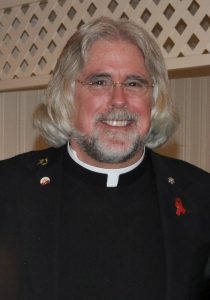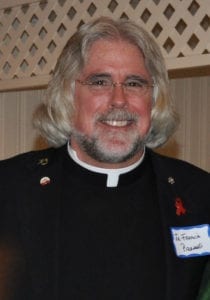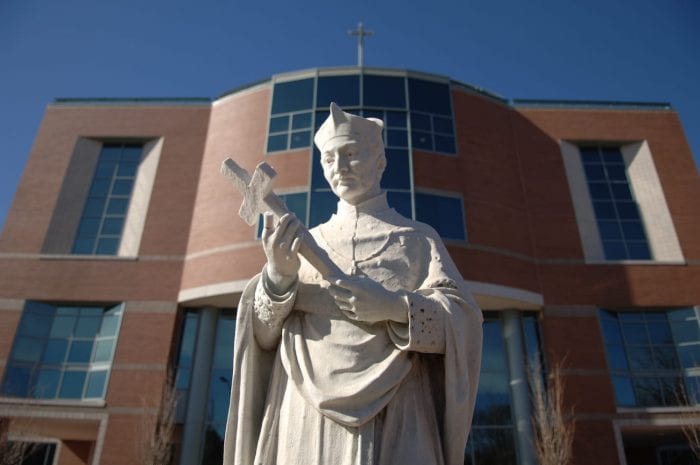By Fr. Francis Pizzarelli

When I first started teaching as a young, idealistic educator, I loved my first assignment to teach in the inner city of Washington, D.C. I was asked to teach seventh and eighth graders and to be the dean of discipline. What I think really saved me in those early years was being the basketball coach of an all African-American basketball team. Some of my students and players still reach out to me today.
Two years in, I was named principal of the junior high school division of this inner-city school. I’m still going for counseling for that experience, but I must admit I really loved my students and faculty and learned so much about what it really means to be an educator.
In the early 1980’s, I graduated to teaching on the college level. I started teaching social science at St. Joseph’s University, formerly St. Joseph’s College, in Patchogue. About the same time, I started to teach at Suffolk County Community College in Selden. After 10 years and being promoted to the rank of full professor, I was invited to teach in the honors college, probably one of the best kept secrets of higher education on Long Island.
Twenty years ago, I was invited to join the adjunct faculty at Fordham University’s Graduate School of Social Service. I teach second year graduate students clinical practice. Their passion for their profession inspires me to stay the course and continue the journey!
Over the years, from my perspective, education has radically changed. Technology has been reshaping our schools for the past two decades. The pandemic had the greatest impact; my post-pandemic freshmen have, at best, weak communication skills. Their writing and critical thinking skills have been severely impaired. I have seen firsthand their tendency towards isolation, even in the midst of a crowd. So needless to say, its been a real challenge.
However, hope does live on! This spring semester at Suffolk County Community College, I have a 3:30 p.m. Introduction to Sociology class. It’s a full class with 35 students. I’m known for being tough and for giving a lot of work so I was somewhat surprised that the class was packed.
These young men and women have given me renewed hope for the future. Our class is like the United Nations. They are bright, hard-working and articulate; we speak about every social issue that is happening in our world. Their respect for diversity and difference is refreshing.
Recently, I asked them why they are so free to say what they think; without hesitancy a group of students called out and said because it’s a safe space. Maybe we need to work harder at creating more safe spaces in our schools at every level for the next generation!
Father Francis Pizzarelli, SMM, LCSW-R, ACSW, DCSW, is the director of Hope House Ministries in Port Jefferson.
















